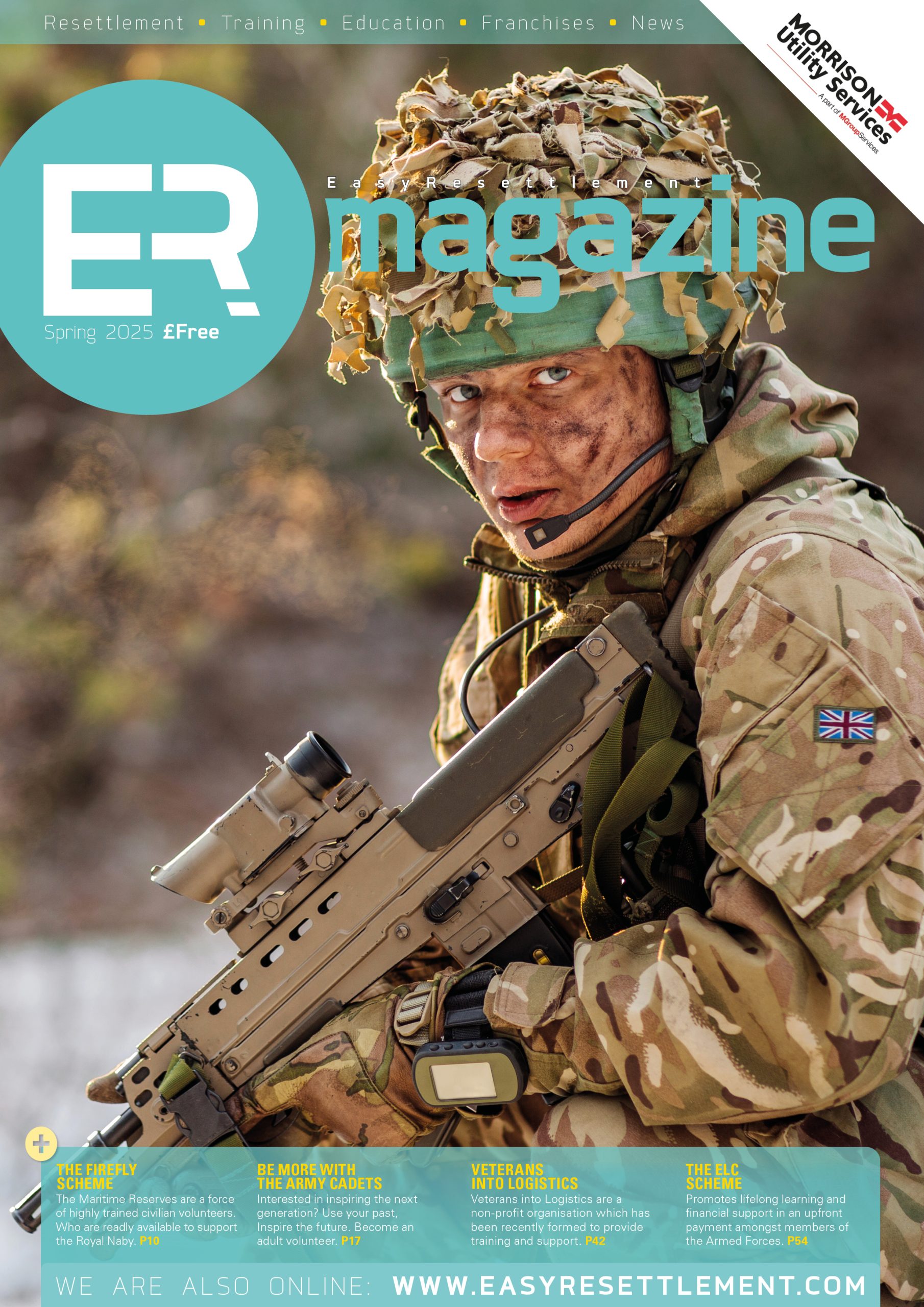CNet Training
Since 1996, CNet Training has educated thousands of service leavers, providing them with the skills, hands-on experience and sought after qualifications to enter the lucrative network cable (fibre optics and copper cabling) and data centre sectors, that make up the digital infrastructure industry.
Today, CNet is the only industry dedicated education provider in the world to provide both internationally recognised qualifications and official certification for its programs.
Kevin Matless has spent 24 years an Instructor at CNet Training, following a 22 year career in the Royal Air Force as an aerial erector. He shares the challenges he faced transitioning between his two careers, along with advice for anyone leaving the services.
When I left school, I started a lift maintenance engineer apprenticeship and although it aligned with my mechanical interests, I’d always known I wanted to join some sort of military service and flying fascinated me. As a spotty faced seventeen-year-old, I walked into the RAF recruitment office with aspirations of becoming a fast jet fighter pilot. I subsequently spent 22 years in the RAF in the (not so glamorous but equally vital) field of antenna engineering. I did travel however, with postings to Gibraltar, Cyprus and Hong Kong, and even when UK-based, we were always on the road and I ticked off visits to most of the NATO countries.
After my basic training, I graduated from aerial erectors school and was mostly installing antenna systems from the very low frequency range all the way up to radar frequencies. There were constant opportunities to further yourself, from basic literacy and numeracy skills to more advanced training, which I undertook in order to be promoted to Corporal. We had regular product familiarisation training with each new antenna system or technological advancement that came into service, so I was continuously acquiring new skills.
I progressed through the ranks to Sergeant and, in the last few years of my service, I became an Instructor for the training school based at RAF Digby near Lincoln. The air force then began replacing all the airfield to radar cables with fibre optic cabling and, at the same time, the MOD were just starting to realise that the people they employed for many years would leave the military with great skills but no recognisable qualifications. The unification of those events meant that we started to run City and Guilds training courses in fibre optic cabling at the training school, and so I became qualified in that area.
Approaching the end of my military career, I heard about some training companies that specialised in fibre optics. When I left in 1996, I spent a very brief spell at a company in Yorkshire that I didn’t like very much at all, before joining CNet Training less than a year later. I was born in Norwich so I’m from East Anglia, where CNet is based. From the first conversation I had with a very nice chap there who invited me to the office for a look around, I immediately liked what I saw. Fortunately, CNet made me an offer, and I was packing the lorry to move down from Yorkshire straightaway.
At that stage, CNet was known as CableNet Training, and had only been in business for a few months. There were already around 15 employees, 5 or 6 of whom were Instructors, and believe it or not, a few familiar faces who are still at CNet now which is testament to the kind of place it is to work. There were other ex-forces members of staff and, in fact, the company itself was established with the idea of providing resettlement training for service leavers.
I was brought in as a City and Guilds fibre optics Instructor but, in the way I was accustomed to in the military, CNet also prioritised upskilling their employees, and I very quickly learned how to teach other programs. CNet’s focus on network cabling and fibre optics expanded to include education programs for the data centre sector and, as well as continuing to deliver education to the service leavers, CNet began to deliver programs to organisations across the world.
In terms of the way we communicate, the advancement is astonishing. I can remember the RAF giving us ‘mobile’ phones, so team leaders could be contacted by their base at all times. They were basically handsets connected to a car battery and it spent most of its life in my car boot because it was far too heavy to carry, so when I returned to base, my bosses would say “I’ve been trying to call you all week!”. Nowadays, the iPhone in your pocket has over 100,000 times the processing power of the computer that landed man on the moon 50 years ago; that advancement in technology has opened up a huge amount of lucrative career opportunities for suitably qualified individuals.
From that first generation mobile to what we have today, moving into 5G and able to carry out almost every aspect of our lives from a device we can hold in one hand, we’ve seen massive growth in data centre presence around the world to build the infrastructure needed to support all that functionality. Data centres are purpose-built facilities where servers and critical IT equipment is housed (in simple terms, they are bigger, more advanced versions of server rooms that most office building used to have in-house), with network cable infrastructure providing the connections from the data centre to end user locations.
The main challenge coming out of a career in the military to a civvy career is that in the Forces, you get told what to do and then you get an AP (air publication) book that tells you how to do it. There’s a procedure for everything. A bit like in a data centre, you can’t just let people do things when and how they feel like it. There is a particular order of events, and I found that quite comfortable. I knew exactly what was required of me every single minute of the day. Transferring my leadership skills was also tricky, because as a leader in the military, you’ve got all those books behind you which gives you confidence. In civvy street, you’ve got to use your personality, your knowledge and your memory as well. I’d been used to an ‘everything by the book’ mentality, and because of that, I found it uncomfortable at first to oversee a team of people without having those procedures set in stone.
Coming into civvy street, although I was in a similar role, I sometimes struggled to know where to start because I didn’t have that AP book. I sat down and thought, how do those publications present the information? How do they tell you how to do things? When you develop training in the RAF you start at the end. You begin by thinking, what does a person taking this training need to have, in terms of skills and knowledge, to become that technician, or to become the aerial erector, or whatever it is – and then you work backwards from that. I’ve drawn on those skills I learned in the military throughout my civvy career, approaching new challenges from that perspective and I still use that mindset today. The other transferable skill I’ve relied on is problem-solving. In the military problems can be life and death so it was essential that we learned how to solve them and, whilst the problems are thankfully not so severe in my civvy career, those skills have proved invaluable.
There’s always something new in the digital infrastructure industry and that’s held my interest over the years, along with the fact that CNet is so adept at changing with the industry needs – there’s never a dull moment!
Kevin’s tips
• Choose something that you like doing and get as much information about the industry as you possibly can
• Take full advantage of all the resources that are thrown at you to get useful qualifications
• Although the seminars on writing CVs, interview techniques, etc. may not sound interesting, go along as they really do help

